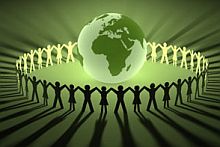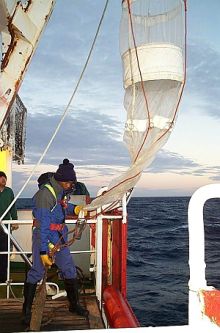SAEON to play vital role in Millennium Ecosystem Assessment initiative
|
- Dr Amani Saidi, Manager: Stakeholder Relations, SAEON
SAEON has been selected to play a pivotal role in a major Millennium Ecosystem Assessment (MA) follow-up project .
Scientists involved in the MA have recognised that SAEON is strategically well-placed to coordinate this initiative, largely due to the fact that SAEON's scientific programme covers both terrestrial and marine ecosystems.
The Millennium Ecosystem Assessment (MA), a major global activity that took place between 2000 and 2005, was a grand exercise of synthesising and evaluating complex information on ecosystems services.
The MA was aimed at assessing the consequences of ecosystem change on human well-being, and at establishing the scientific basis for up-scaling the conservation and sustainable utilisation of the world's ecosystems. It was essentially a collaborative programme of 10 international bodies including the Food and Agricultural Organisation (FAO), the United Nations Environmental Programme (UNEP) and the United Nations Foundation.
Multi-scale assessment
The MA was conducted as a multi-scale assessment, with a number of components undertaken at local, basin, national and regional scales. These were in addition to the global assessment. South African scientists played a key role in the southern African Millennium Ecosystem Assessment (SAfMA) component of the global programme.
In 2008, the MA Secretariat launched a follow-up programme that, in the main, will involve assessment at sub-global levels. Buoyed with an endorsement from the Department of Science and Technology (DST), leading South African terrestrial and marine ecology scientists have embarked on a process to prepare a proposal to carry out an MA follow-up project covering both terrestrial and marine ecosystems. The latter did not feature prominently in the SAfMA, and yet they are crucial to the livelihoods of a sizeable proportion of the population in southern Africa, as well as to the regulation of the climatic patterns of the region.
The scientists also intend to use the India-Brazil-South Africa (IBSA) Framework of Cooperation to extend the MA follow-up initiative to cover some relevant areas in India and Brazil as well. The motivation for doing so is that many aspects of the Indian, Brazilian and South African physical and developmental environments are shared.
Comparative assessment for India, South Africa and Brazil
A comparative assessment on a commonly agreed set of issues, using a consistent methodology should therefore allow for generalisations to be made regarding the consequences of ecosystem change for human well-being in these three rapidly industrialising tropical countries.
SAEON has been designated as the platform for coordinating the process of generating the IBSA MA follow-up project proposal. Being essentially a network, SAEON is also optimally positioned in terms of reaching and bringing together different stakeholders.
SAEON will work closely with the International Cooperation Branch of the DST in liaising with the relevant authorities and scientists in India and Brazil. "The DST is looking forward to working with SAEON on this project," said Portia Raphasha of the DST's International Cooperation and Resources Department.
An IBSA MA follow-up project workshop is scheduled to take place early this year as part of this initiative.












